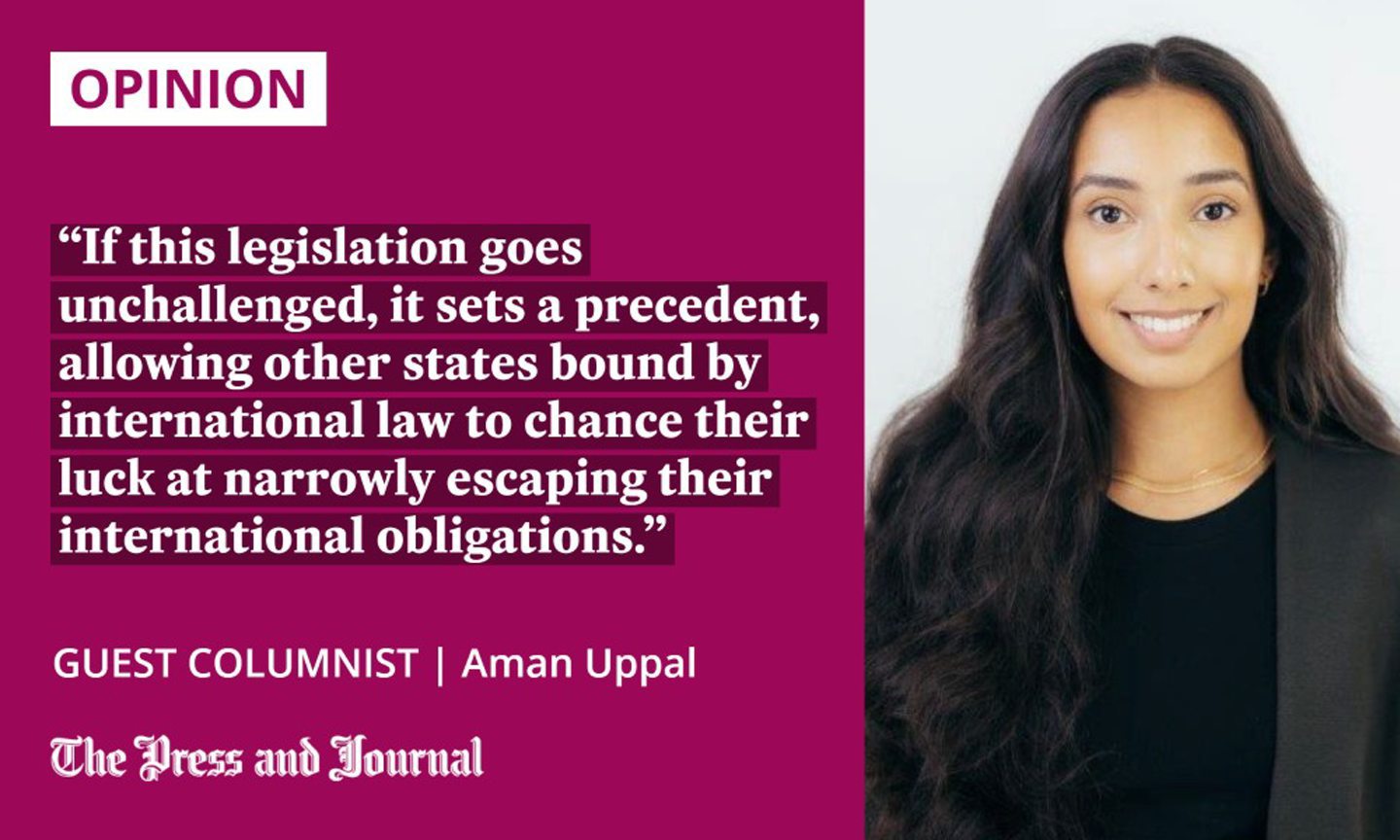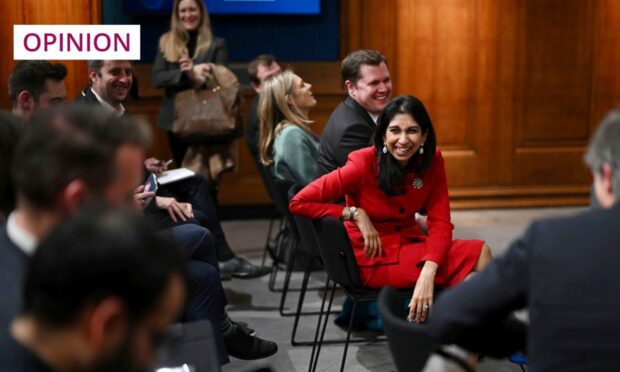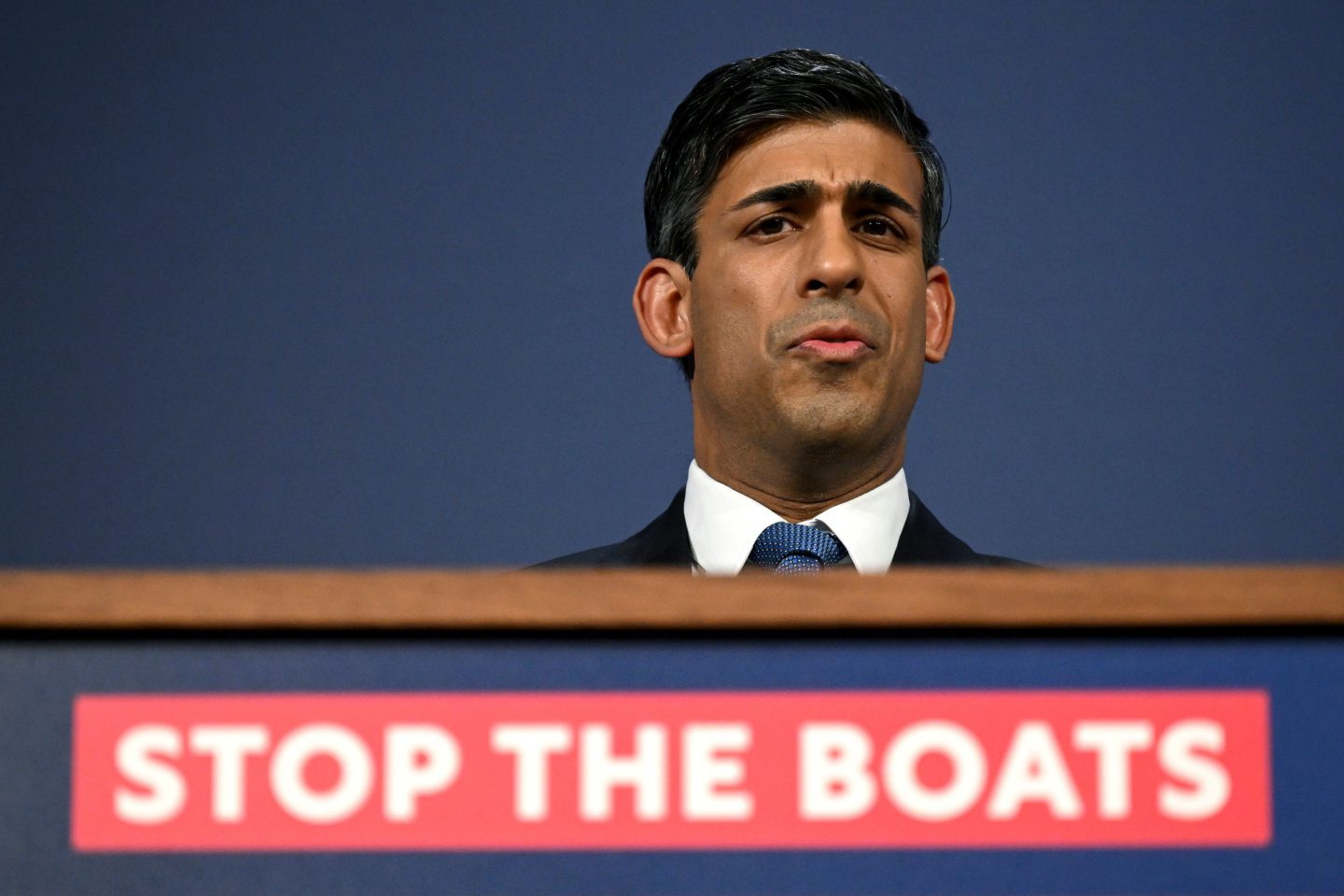Not only does the UK Government’s immigration Bill disregard the spirit of the Refugee Convention, it goes as far as potentially breaching it, writes law graduate Aman Uppal.
The details of Westminster’s new “Stop the Boats” policy are introduced on the UK Government’s website as: “Ground-breaking new laws to stop the boats”. In reality, “life-shattering” would be a better description.
The Illegal Migration Bill passed its second reading last week, despite contradictory recommendations from the United Nations Refugee Agency.
This Bill is supposedly designed to encourage asylum seekers to use safe and legal routes to enter the UK, and deter them from crossing the Channel by preventing those who do so from claiming asylum in the UK. Instead, they will be detained and removed from the country.
There seems to be a lack of – if not zero – consideration being given to the fact that asylum claims can only be lodged from inside the United Kingdom and, currently, there is no visa that exists to allow people to come to the UK to seek asylum. Essentially, the “safe and legal routes” the government is encouraging these vulnerable people to use do not exist.

If a person cannot enter the country legally or by crossing the Channel, they cannot enter the country at all, which is, ultimately, the government’s apparent goal.
Instead of considering the ways in which safe and legal routes for asylum seekers can be provided, there is a focus on the ways in which they can be reduced further until, eventually, they practically disappear. Unfortunately, that “eventually” is now.
Prime Minister Rishi Sunak has stated that he and Home Secretary Suella Braverman will only consider expanding safe and legal routes after “stopping the boats”. The question that arises here is: how long would this consideration take?
How much longer will thousands of vulnerable people be stranded in countries they are desperate to flee, likely in dangerous circumstances, before these safe and legal routes are established?
Based on the UK Government’s track record, it is not likely that these routes will become available any time soon. The aim here appears to be to exclude rather than to help; to deter rather than to protect.
UK has international responsibilities to help refugees
The Illegal Migration Bill appears to follow the lead of immigration policies implemented in Australia and the US, creating something of a competition over which country can deter unwanted immigrants in the most effective way, as opposed to valuing their responsibilities under international law.
At its very core, the United Nations 1951 Refugee Convention (an international legal instrument) aimed to define the term “refugee” and outline the rights of the displaced, as well as the legal obligations of nations and states to protect them. As things currently stand, this convention reads as a list of everything the UK Government is failing to do.
It protects refugees from being rejected at the borders of safe states, and from being punished for entering a state without permission. It also stipulates that refugees’ human rights must be respected, and that they must be protected in the country they have fled to.
Abhorrently, the powers outlined in the Illegal Migration Bill could give rise to a direct breach of Article 33 of the 1951 Convention, which prohibits refoulement – the act of forcing a refugee or asylum seeker to return to or enter a country or territory where they are likely to face persecution.
We’re in danger of rendering principle of asylum meaningless
If asylum seekers and refugees enter the UK by crossing the Channel and, as a result, are detained and removed, in accordance with this Bill, they may be returned to the country they were fleeing from, due to facing persecution, thus giving rise to constructive refoulement. In effect, not only does this Bill disregard the spirit of the 1951 Convention, but it also goes as far as potentially specifically breaching it.
The UK Government is not ignorant of this. In Braverman’s letter to MPs on the Bill, she stated: “This does not mean the provisions in the Bill are incompatible with the Convention rights, only that there is a more [than] 50% chance that they may not be. We are testing the limits but remain confident that this Bill is compatible with international law.”
If we, alongside other countries, continue down this road, there will be no avenue of escape for people living in precarious conditions
By extension, if this legislation goes unchallenged, it sets a precedent, allowing other states bound by international law to chance their luck at narrowly escaping their international obligations, designed to protect the human rights of the masses, at the expense of the lives of the vulnerable.
If we, alongside other countries, continue down this road, there will be no avenue of escape for people living in precarious conditions. Those facing immediate danger across the rest of the world will not have anywhere safe to turn.
If each state slowly churns out legislation prohibiting asylum seekers and refugees from entering, with no existing alternative, the universal principle of asylum will be rendered meaningless, as “asylum” will no longer exist.
Aman Uppal is a law graduate and future trainee solicitor with a particular interest in human rights and immigration law


Conversation